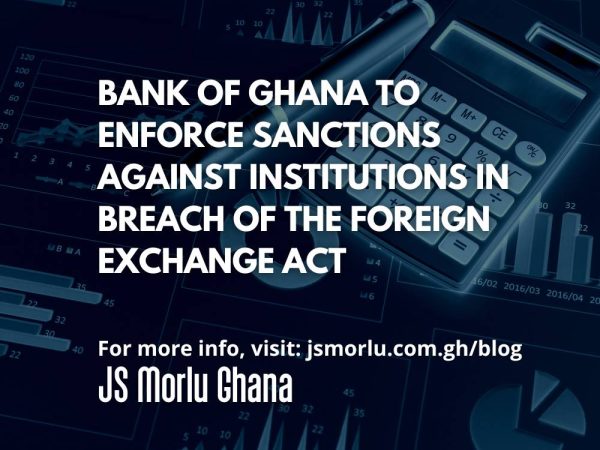Regulatory Alert from the Central Bank
The Bank of Ghana (BoG) has issued a formal notice to financial institutions involved in foreign exchange and remittance services, warning of strict sanctions for continued violations of the Foreign Exchange Act, 2006 (Act 723) and the Updated Guidelines for Inward Remittance Services.
Institutions named in the statement include:
- Banks
- Dedicated Electronic Money Issuers (DEMIs)
- Enhanced Payment Service Providers (EPSPs)
- Money Transfer Operators (MTOs)
The BoG’s message is clear: further noncompliance will trigger enforcement actions.

Nature of the Violations
The BoG identified several key regulatory breaches:
- Terminating remittances through unapproved channels
- Engaging in foreign exchange swaps in relation to inward remittance flows
- Handling remittance settlements on behalf of institutions without prior BoG approval
- Applying unauthorized or unprescribed foreign exchange rates
These actions undermine transparency and may distort Ghana’s foreign exchange market.
Legal and Regulatory Framework
The Foreign Exchange Act, 2006 stipulates that all foreign exchange transactions must be executed only by licensed institutions and in accordance with the rules established by the BoG.
Complementing this law are the Updated Guidelines for Inward Remittance Services by Payment Service Providers, which specify how remittances must be processed and settled.
Relevant provisions include:
- Section 7.1(c): Local Settlement Accounts must be funded only through approved channels.
- Section 7.2(a): All disbursements must originate from the Local Settlement Account.
- Section 7.2(b): Pre-funding arrangements with Settlement Banks must be approved and documented.

Mandatory Reporting Requirements
To reinforce compliance, the BoG now requires all licensed entities to submit weekly reports, organized by MTO. These reports must include:
- Daily inward remittance transaction logs
- Daily foreign exchange credits received into respective Nostro accounts
Failure to comply with these reporting obligations constitutes a breach of:
- Section 42 of the Payment Systems and Services Act (Act 987)
- Section 93(3)(d) of the Banks and Specialised Deposit-Taking Institutions Act (Act 930)
Violators will be subject to appropriate administrative sanctions.
Implications for Institutions
The Bank of Ghana has stated that it will:
- Impose penalties on violating institutions
- Terminate partnerships with MTOs that are not operating within the approved regulatory framework
This announcement signals increased oversight and a commitment to enforcing integrity within the country’s financial system, particularly in the remittance and forex sectors.
Summary of Key Requirements
| Compliance Area | Expectation from BoG |
|---|---|
| Settlement Funding | Must follow Section 7.1(c) |
| Disbursements | Must originate from Local Settlement Account |
| Pre-Funding | Must align with Section 7.2(b) |
| FX Rates | Must use prescribed BoG exchange rates |
| Reporting | Weekly logs per MTO + FX inflows into Nostro accounts |
Conclusion
The Bank of Ghana’s notice marks a renewed emphasis on regulatory compliance in foreign exchange operations. All banks, electronic money issuers, and payment service providers are expected to align their operations with the Foreign Exchange Act and remittance guidelines without delay.
Institutions are strongly encouraged to review their internal processes and reporting protocols to ensure full compliance and avoid potential sanctions.
